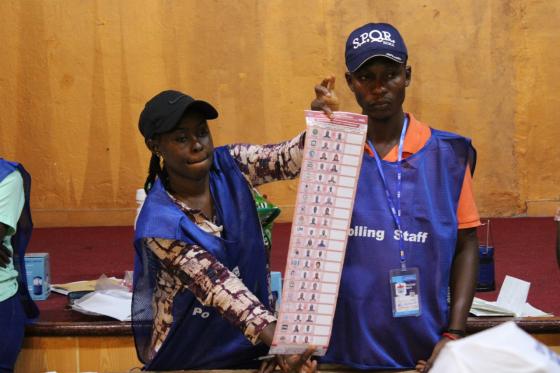Liberia: The 115k Ballots Counted as “Invalid Votes” Should Be Audited and Here Is Why

By Henrique Caine
First of all, that is a significant amount of votes out of 1.8 million casts. That means 115, 000 people woke up and stood in line, in some cases, for hours, and their votes didn't count. That should matter. We need to know if they are a factor of human error, lack of voter education and awareness, or just outright fraud in the tallying. We should be asking the following:
1) Are invalid votes dominant in any particular region, county, district, precinct, or polling places? Any similar characteristics?
2) What was the level of voter education or awareness in places with high invalid votes? How visible and active were civil society, NEC, and political parties’ awareness programs?
3) What manner of voting constituted the majority of ballots as invalid (multiple votes, unclear or confusing vote, not following instruction to place an ‘X’, check mark (☑️), finger print; and voters placed something else)?
4) We know that an estimated 52% of Liberians are illiterate — meaning they cannot read and write. Should we explore alternate voting strategies for illiterate voters who might be confused by lengthy ballot papers when standing by themselves in a voting booth?
5) Were poll watchers from political parties present on election day at locations with high numbers of invalid votes? This will help address the suspicions around possible fraud.
Bottomline is, all correlations and any obvious trends should be examined. This should be done with the intent to understand why there are so many invalid votes and to dispel all suspicions and notions that it is a result of intentional and well orchestrated fraud during the tallying process. 115,000 invalid votes is a high number for a country the size of Liberia. Let’s examine those invalid ballots.
Editor's note: The views expressed in this article are the author’s own and do not necessarily reflect Daily Observer's editorial stance.
